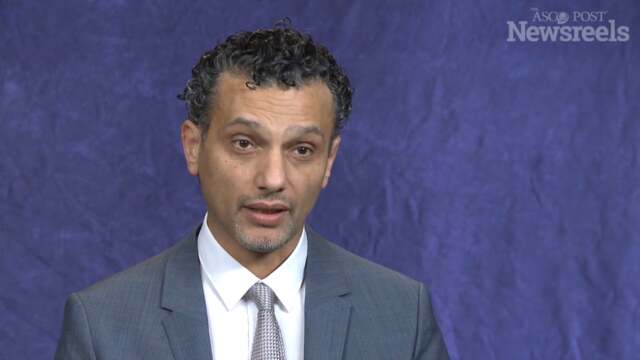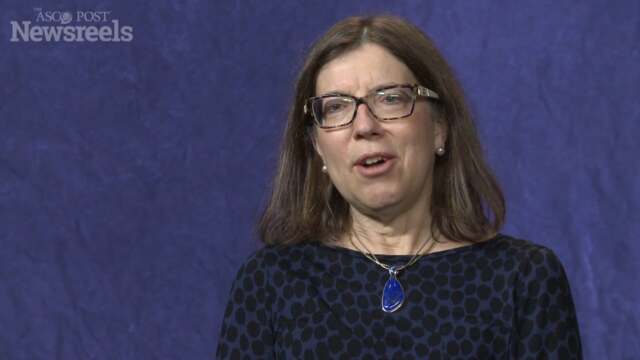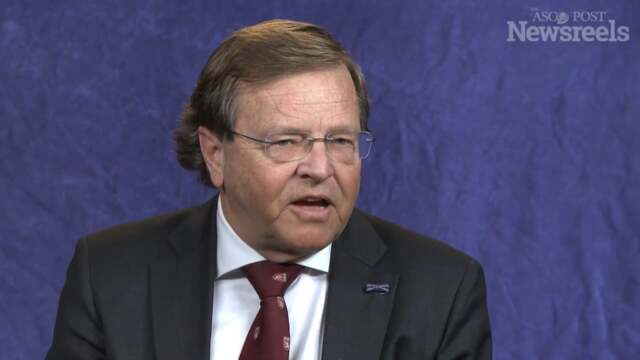Ian Chau, MD, on Esophageal and Gastric Cancers: Systemic Agents and Options
2017 Gastrointestinal Cancers Symposium
Ian Chau, MD, of the Royal Marsden Hospital, discusses the continuum of care in esophageal and gastric cancers and the multiple active lines of treatment. Routine adoption of genomic testing may lead to further refinement of current treatment and more options in the future.
Salah-Eddin Al-Batran, MD, of the Institute of Clinical Cancer Research and Nordwest Hospital, discusses study findings on paclitaxel with and without RAD001 in patients with gastric cancer whose disease has progressed after therapy with a fluoropyrimidine/platinum-containing regimen (Abstract 4).
Masanori Terashima, MD, PhD, of Shizuoka Cancer Center, discusses phase III study findings evaluating bursectomy for patients with subserosal/serosal gastric cancer (Abstract 5).
Cynthia L. Sears, MD, of Johns Hopkins University School of Medicine, summarizes her keynote talk on microbes, microbiota, and colon cancer. Next-generation sequencing combined with biologic studies suggests that most colorectal cancer cases have specific microbiome associations.
Cornelis van de Velde, MD, PhD, of Leiden University Medical Center, discusses the International Watch & Wait database, established to track evidence on organ-preserving strategies in patients with rectal cancer (Abstract 521).
For More Information: www.IWWD.org
Karyn A. Goodman, MD, of the University of Colorado School of Medicine, discusses initial study findings on PET scan–directed combined-modality therapy for esophageal cancer (Abstract 1).





